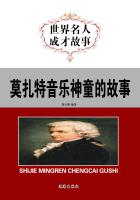The Congress of offered us an opportunity to make known, at closer range, to foreign scientists, our new radioactive bodies. This was one of the points on which the interest of this Congress chiefly centered.
We were at this time entirely absorbed in the new field that opened before us, thanks to the discovery so little expected. And we were very happy in spite of the difficult conditions under which we worked. We passed our days at the laboratory, often eating a simple student's lunch there. A great tranquillity reigned in our poor, shabby hangar; occasionally, while observing an operation, we would walk up and down talking of our work, present and future. When we were cold, a cup of hot tea, drunk beside the stove, cheered us. We lived in a preoccupation as complete as that of a dream.
Sometimes we returned in the evening after dinner for another survey of our domain. Our precious products, for which we had no shelter, were arranged on tables and boards; from all sides we could see their slightly luminous silhouettes, and these gleamings, which seemed suspended in the darkness, stirred us with ever new emotion and enchantment.
Actually, the employees of the School owed Pierre Curie no service. But nevertheless the laboratory helper whom he had had to aid him when he was laboratory chief had always continued to help him as much as he could in. This good man, whose name was Petit, felt a real affection and solicitude for us, and many things were made easier because of his good will and the interest be took in our success.
We had begun our research in radioactivity quite alone, but because of the magnitude of the undertaking, we were more and more convinced of the utility of inviting collaboration. Already in , one of the laboratory chiefs of the School, G. Bemont, had given us temporary aid. And toward Pierre Curie associated with him a young chemist, André Debierne, preparator under Friedel, who held him in high esteem. André Debierne gladly accepted Pierre Curie's proposal that he occupy himself with the investigation of radioactivity; and he undertook, in particular, the search for a new radio element, which we suspected existed in the iron group and in rare earths. He discovered the element actinium. Even though he carried on his work in the laboratory of physical chemistry at the Sorbonne, directed by Jean Perrin, he frequently came to visit us in our storeroom, and was soon an intimate friend of ours, and of Doctor Curie and the children.
About this same time, George Sagnac, a young physicist engaged in the study of X-rays, often came to discuss with my husband the analogies one could expect to find between these rays, and their secondary rays, and the radiations of radioactive bodies. They worked together on the investigation of the electric charge carried by the secondary rays.
Besides our collaborators we saw very few persons in the laboratory; however, from time to time some physicist or chemist came to see our experiments, or to ask Pierre Curie for advice or information; for his authority in several branches of physics was very well recognized. And then there were discussions before the blackboard, -- discussions which are pleasantly remembered to-day, because they stimulated an interest in science and an ardor for work without interrupting any course of reflection, and without troubling that atmosphere of peace and contemplation which is the true atmosphere of the laboratory.















